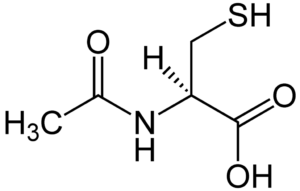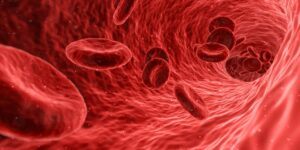Mushrooms For Alzheimer’s Disease

A new study claims that mushrooms could prevent AD. Mushrooms contain bioactive compounds that could play a role in reducing the development of neurodegeneration.
Previous evidence has proven that mushrooms exhibit antioxidant, antitumor, antivirus, anticancer, anti-inflammatory, antimicrobial, and anti-diabetic activities.
According to researchers, mushrooms with anti-inflammatory properties may be used as functional foods to combating high blood pressure which contributes to many age-related chronic diseases including neurodegenerative diseases.
What is the treatment for Alzheimer’s disease with medical mushrooms?

Lion’s Mane Mushroom For Alzheimer’s
Cordyceps Mushroom Benefits
Reishi Mushrooms For Alzheimer’s Disease
Ashwagandha For Alzheimer’s

ASHWAGANDHA is one of the most powerful herbs in Ayurvedic healing which has been used since ancient times for a wide variety of conditions. Does Ashwagandha work? Yes, it does…especially when it comes to brain health…
What’s Ashwagandha
Ashwagandha is frequently referred to as “Indian ginseng” because of its rejuvenating properties. Ashwagandha contains many useful medicinal chemicals, including withanolides (steroidal lactones), alkaloids, choline, fatty acids, amino acids, and a variety of sugars. While the leaves and fruit have valuable therapeutic properties, the root of the Ashwagandha plant is the part most commonly used in Western herbal remedies.
Ashwagandha Benefits For Alzheimer’s
Researchers at Newcastle University have found that ashwagandha inhibits the formation of beta-amyloid plaques. These plaques, considered toxic to brain cells, accumulate in the brains of people with neurodegenerative diseases, such as Alzheimer’s. Studies on ashwagandha show its promise as a treatment for memory loss and dementia in humans. GET ASHWAGANDHA HERE
Ginkgo Biloba Benefits: A Cure For Alzheimer’s?
About Ginkgo Biloba
GINKGO is the world’s oldest tree with a medicinal history dating back to the oldest Chinese material medica (2800 BCE). Traditional use as a medicine is recorded in the late 15th century in China; 1st registered medicinal use among western countries was in 1965 in Germany. It is one of the most used herbal medicines in the traditional treatment of Alzheimer’s Disease. Uses of Ginkgo Biloba include treatment of stress-related conditions, schizophrenia, blood flow and pressure problems, altitude sickness, erectile dysfunction, asthma, neuropathy, cancer, premenstrual syndrome, attention deficit hyperactivity disorder ( ADHD ), and macular degeneration.
Ginkgo Biloba Benefits
It has a number of beneficial pharmacologic effects. It is an antioxidant, a free radical scavenger, a vasodilator, and an inhibitor of platelet-activating factor. This latter effect decreases platelet aggregation, phagocyte chemotaxis, smooth muscle contraction, and excitatory amino acid receptor function. This compound effect of decreasing platelet-activating factor results in the better cerebral circulation, less inflammation, and less excitotoxicity. These are all beneficial effects in AD.
Ginkgo Biloba has both antioxidant and anti-inflammatory properties, to protect cell membranes and to regulate neurotransmitter function.
The accumulation of plaques called beta-amyloid in the brains of Alzheimer’s patients is another pathological change that contributes to the disease progression and can lead to the death of neurons in the brain. While current prescription medications for Alzheimer’s disease do nothing to prevent or treat these effects, recent studies have shown that ginkgo can actually protect sensitive neurons from the destructive effects of beta-amyloid.
Ginkgo Biloba For Alzheimer’s
Multiple studies show that Ginkgo biloba protects neurons against beta-amyloid neurotoxicity including the reduction of apoptosis. It appears to inhibit the formation of amyloid fibrils and decrease the activity of caspase 3, a key signaling enzyme in the apoptosis cascade. Numerous clinical studies show the benefit of Ginkgo biloba in AD. An improvement was seen in cognitive and social spheres with no significant side effects.
Recommended Dosage Ginkgo Biloba
Ginko Biloba dosage is 120 mg/ day.
Before starting to take the Ginkgo Biloba supplement consult with your doctor. Ginkgo Biloba side effects may occur ( allergic skin reactions, bleeding disorders, constipation, contact dermatitis, diarrhea, dizziness, impaired fertility, headache, nausea, palpitations, restlessness, seizures, stomach upset, vertigo, weakness )…
Turmeric For Alzheimer’s

It is established that chronic use of nonsteroidal anti-inflammatories reduces the incidence of AD. They appear to reduce the aggregation of A-beta (amyloid-beta-peptide) fibrils and also to suppress the activity of microglia (the brain’s inflammatory cells). Unfortunately, chronic use of these medications, such as ibuprofen and naproxen, can cause gastrointestinal (GI) damage and liver and renal toxicity. However, many of the benefits of anti-inflammatories may be obtained by using turmeric, which contains antioxidants including polyphenol curcumin.
Curcumin For Alzheimer’s
An experimental study at UCLA showed that curcumin lowered oxidized proteins in the brains of experimental mice used for their tendency to develop AD pathology. Curcumin reduced interleukin-1beta (a pro-inflammatory cytokine), insoluble and soluble beta-amyloid, and plaque burden by 43–50 percent. The activation of microglia was also reduced. Further support for use of turmeric comes from 2004 in vitro study that showed a dose-dependent reduction in beta-amyloid fibrils in response to treatment with curcumin.
Turmeric Side Effects
Turmeric may cause GI side effects long-term. If bloating, gas, nausea, or indigestion occur, stop the turmeric. It can be retried at a later date. In theory, turmeric could increase the risk of bleeding, particularly when used with platelet inhibitors such as aspirin.
Recommended Dosage For Turmeric
Foods That Prevent Alzheimer Disease: Garlic Medical Benefits

Garlic Prevent Disease
A study revealed that garlic slows down aging and protects the brain from diseases such as Alzheimer’s Disease.
Garlic Brain Health
Garlic increases serotonin concentrations in the brain, which improves brain functions such as learning and memory.
Kyolic Aged Garlic Extract
GARLIC EXTRACT inhibits cortical acetylcholinesterase (AchE) while increasing glutathione (GSH) concentrations.GSH is an antioxidant that protects brain cells from free radical damage. Treatments for Alzheimer’s disease use AchE inhibition. AchE inhibition may affect executive and attentional cognitive functions. Aged garlic compounds, in particular, S-allyl-L-cysteine, protects neural cells.
Garlic Daily Dosage
Garlic dosages vary from 600 mg three times/day up to 7.2 g/day
Aloe Vera And Alzheimer’s: Natural Alzheimer Cure

Benefits Drinking Aloe Vera Juice
A study from the University of Miami’s School of Medicine showed that Aloe vera reduces Alzheimer’s disease symptoms and increases cognition scores. In this study was found to improve cognitive functioning in 46 percent of the patients.
How Does Aloe Vera Help
Aloe vera removes toxins from the body and balances the pH. Removing toxins from organism increase blood flow to organs, which also improve blood circulation to the brain and cause a cleansing effect on the brain. This could possibly reduce the plaque associated with Alzheimer’s disease.
It reduces inflammation, it is loaded with antibacterial, antiviral, and antifungal compounds. Several studies showed that Aloe Vera’s power boosts the immune system, resulting in lower infections and inflammations and increasing healthy cells.
Aloe Vera is full of nutrition like vitamin B6 and B12. It balances the health of the entire body and can be used for many other conditions, without any side effects.
How To Use Aloe Vera For A Natural Alzheimer’s Treatment
Aloe Vera Gel In Capsules -take 1 capsule up to 4 times daily with a meal or glass of water.
Aloe Vera Drink Recipe: Father Romano Zago Aloe Arborescens Drink
Aloe Vera Drink Ingredients:
- 12.4 oz of organic Aloe Vera Arborescens Leaves, or buy ready-made Aloe Vera Drink
- 18 oz of organic Honey
- 0, 2 cup of organic rum, whiskey, grappa, or similar alcoholic beverage
How To Make Aloe Vera Drink
- Wash the Aloe Vera Arborescens leaves, remove the tip of the leaves and thorns
- Put Aloe Arborescens, Honey, and Alcohol in a blender
- Blend it for a minute
- Store this greenish syrup in a jar in the refrigerator
How To Use Aloe Vera
- Shake the jar, before drinking syrup.
- Take 1-2 tablespoons 1/2 hour before meal 3 times a day
- Continue these steps until your batch is totally used up ( 3 weeks ca. )
- After 3 weeks of consuming take a break for 10 days
- This recipe can be used for several months without side effects
Aloe Vera Juice Side Effects
- None
- Via Pores Of Skin
- Itchy skin
- Blisters on the palms and soles
- Abscesses, swelling, and bumps
- Varicella-like skin
3. With Defecation
- Flatulence
- Diarrhea and gastrointestinal disturbances
- A stronger odor than usual
4. With Urine
- Almost brown
- Frequent urination
- Urine, which is seen as the blood is mixed with water
5. Other Reactions
- Vomiting
- Hand and legs oozing
- Unlocated pain, especially in the abdominal area
Father Romano Zaga suggests that treatment should not be stopped if any of these side effects occur. If these symptoms appear we are on the right track because toxins will excrete from our body. Problems are usually present in the first days of consumption – up to 3 days.
Herbs For Alzheimer’s: Brahmi

What Is Brahmi
Bacopa monnieri( Brahmi, water hyssop, herb of grace, Indian pennywort,..) is a perennial, medicinal herb used in Ayurveda.
Brahmi Benefits
Several studies have confirmed that a special Ayurvedic herb Brahmi or Bacopa Monnieri increases memory and cognition, and may treat dementia and Alzheimer’s disease.
Brahmi Powder Recent Health Studies
One study was conducted in the Medical College of Thailand’s Khon Kaen University with 60 volunteers with an average age of 63 years old. They gave volunteers a placebo and BRAHMI for 3 months.
Before the study began, the researchers tested the subjects memory accuracy, attention span, cognitive processing speed, and reaction time. Brain cell cholinergic and monoaminergic functions were also measured.
Volunteers were tested every four weeks during the treatment as well as four weeks after the end of the treatment.
Patients that received Brahmi had significant improvement in cognition function, increased memory, better attention and greater reaction times. The group received 300- 500 mg of BRAHMI extract. The study also found that BACOPA MONNIERI altered their cholinergic and monoaminergic activity, so they concluded that BRAHMI can improve cognitive functions, attention, and working memory.
Volunteers treated with BRAHMI the beta-amyloid-induced Alzheimer’s damage was halted. Brahmi-treated neurons expressed a lower level of reactive oxygen species suggesting that Brahmi restrained intracellular oxidative stress which in turn prolonged the lifespan of the culture neurons. GET BRAHMI HERE
Benefits Of Cannabinoids For Natural Alzheimer Treatment

Cannabinoids Effects
Cannabinoids appear to blunt the pathogenesis of AD utilizing multiple pathways. Cannabinoids “exhibit pleiotropic activity, targeting in parallel several processes that play key roles in AD, including Aβ and tau aberrant processing, neuroinflammation, excitotoxicity, mitochondrial dysfunction, and oxidative stress. Cannabinoids improve behavioral disturbances, as well.” Scientists concluded that “cannabinoids might represent a safe low-cost therapy, with their natural origin and low side effects profile”
Latest Cannabis Research
The results of several studies showed ” that the CBD components of cannabis might be useful to treat and prevent AD because CBD components could suppress the main causal factors of AD.” Some of the studies suggested, “that using CBD and THC together could be more useful than using CBD or THC alone.”
CBD Oil For Alzheimer’s
In conclusion, the experimental data strongly suggest multiple benefits of cannabinoids in AD. Good clinical studies are lacking. In a disease without any available medicine to retard progression, a CBD: THC oral preparation should be considered for daily usage. Given the propensity of AD patients for catastrophic reactions and general neuropsychiatric sensitivity, cannabinoids should be used with caution and under the supervision of a medical practitioner experienced with the use of medical marijuana.
N Acetylcysteine Benefits For Alzheimer’s

N ACETYLCYSTEINE is derived from the amino acid cysteine in the body. It is a source of sulfhydryl groups and is metabolized into compounds that stimulate glutathione synthesis and act as antioxidants and free radical scavengers.NAC is used for the treatment of toxicity from acetaminophen, carbon monoxide, heavy metals, and various other exogenous toxicities. It is used as well for a large group of disorders including angina, amyotrophic lateral sclerosis (ALS), Sjogren’s syndrome, and alcoholic liver damage.
NAC Studies
A study in Switzerland showed that NAC downregulated gene transcription of APP in human neuroblastoma cells. Reducing APP levels could decrease the formation of amyloid plaques. This property, along with its anti-inflammatory action, may explain the positive results obtained, in a subset of cognitive measures, when AD patients were treated with NAC as part of a 2001 study.
N Acetylcysteine Side Effects
NAC can cause some gastrointestinal (GI) side effects. It can reduce carbamazepine drug levels, affect blood test levels of chloride and creatinine, and perhaps rarely raise liver enzymes. In general, it is a safe supplement.
N Acetylcysteine Dosage
Benefits Of Alpha Lipoic Acid For Alzheimer’s

Ever wondered what is Alpha Lipoic Acid For? Alpha-lipoic acid ( ALA ) is utilized as an antioxidant. It prevents certain kinds of cell damage and restores vitamin levels such as vitamin E and vitamin C.
Alpha Lipoic Acid What Is
Alpha-lipoic acid is synthesized in the body and can be found in meat, spinach, liver, broccoli, potatoes, yeast, tomatoes, yams, carrots, and beets,…
Alpha Lipoic Acid For Brain Health
Melatonin And Alzheimer’s
What Is Melatonin
Melatonin is a hormone that is produced by the pineal gland and regulates sleep and wakefulness. It also regulates circadian rhythm, endocrine secretions, blood pressure regulation, and seasonal reproduction. Studies have shown melatonin to protect against radiation-induced cellular damage.
It is synthesized from the nutritional amino acid tryptophan, via its derivative 5-hydroxytryptophan (5-HTP) and the neurotransmitter serotonin.
Does Melatonin Really Work
The ability of melatonin to interact directly with the electron transport chain by increasing the electron flow and reducing electron leakage are unique features by which melatonin is able to increase the survival of neurons under enhanced oxidative stress.
Melatonin Sleep Aid
Does Melatonin Help You Sleep? Yes, It Does. Sleep disruption is one of the behavioral problems that occur in 45 % of AD patients. People need enough melatonin for proper sleep, excessive wakefulness reduces the amount of the hormone, which may occur in plaque development.
How Does Melatonin Work
It has specific neuroprotective qualities, meaning that it helps protect nerve and brain cells from damage. GET IT HERE
Vitamins For Alzheimer’s: Benefits Of Vitamin C And Vitamin E
Vitamin E Health Benefits
Studies showed that vitamin E reduced protein oxidation, reactive oxygen species formation, and neurotoxicity of the 42 amino acid amyloid-beta-peptide in rat embryonic hippocampal neuronal culture.
Vitamin C And E
Low cerebrospinal fluid concentrations of vitamins C and E are observed in AD patients and a 2002 study revealed diminished intakes of antioxidant vitamins, including vitamins E and C, in AD patients. A clinical study in La Jolla, California, with AD patients, indicated that vitamin E “may slow functional deterioration leading to nursing home placement in AD patients.” These results are supported by a multicenter clinical trial that revealed vitamin E treatment (2,000 IU/day) significantly slowed disease progression comparable to results obtained with selegiline. A combination of vitamin E with vitamin C may be necessary for optimal results, as noted in a German study that found a decrease in lipoprotein oxidation only when patients took both vitamins.
Vitamin E Dosage And Vitamin C Dosage
Appropriate dosages of vitamins C and E seldom cause side effects. However, vitamin E slightly increases the risk of bleeding, particularly when combined with antiplatelet drugs, such as aspirin, Plavix, or Aggrenox. A dosage of 200–600 IU/day of vitamin E and up to 1 gm/day of vitamin C daily dosage is appropriate in the AD. It is important to use d-alpha-tocopherol, the natural form of vitamin E. Also, it is essential to use a product that contains mixed tocopherols, the class of molecules constituting vitamin E, which may be as important if not more important than alpha-tocopherol for certain functions in the body. It should be added that the best way to take antioxidants is in combination with each other rather than taking one by itself. A high potency multivitamin generally provides substantial amounts of antioxidants. Vitamins E and C can then be added to increase the daily dose.
Pycnogenol Benefits For Alzheimer’s
What Is Pycnogenol
Pycnogenol is an extract from the bark of the French maritime pine tree, which contains important antioxidant flavonoids. Flavonoids have multiple beneficial effects on health. It can be found in vegetables, fruits, plants, and some beverages.
Pycnogenol Studies
A study revealed that Pycnogenol supplement suppressed the generation of reactive oxygen species in a rat pheochromocytoma cell line exposed to beta-amyloid. Pycnogenol also suppressed other events that lead up to programmed apoptosis that occurs in the AD. These events included caspase-3 activation and DNA fragmentation as well as suppressing apoptosis itself. Pycnogenol also protects animal brain cells from the excitotoxicity of high levels of glutamate, a neurotransmitter that plays a role in neurodegenerative disorders.
Pycnogenol Side Effects
Because of preliminary evidence that Pycnogenol stimulates the immune system, the one potential theoretical concern with its use is when the individual has an autoimmune disorder.
Pycnogenol Dosage
Pycnogenol dose is 50–100 mg three times/day.
Chelation Therapy: Alternative Treatment For Alzheimer’s Disease
What Is Chelation Therapy
Chelation therapy is a medical procedure that involves the administration of chelating agents to remove heavy metals from the body. Chelation therapy has a long history of use in clinical toxicology.
Does Chelation Therapy Work
Chelation is a very effective way to treat heavy-metal poisoning. The U.S. Food and Drug Administration (FDA) has approved prescription chelation therapy for the treatment of lead poisoning. Injected EDTA binds with the harmful metal and both are then eliminated from the body through the kidneys.
Chelation Therapy Studies
Researchers say that chelation therapy is thought to work by preventing zinc and copper ions from binding to beta-amyloid, which helps dissolve the protein and prevent it from accumulating in the brain. A buildup of “plaque” in the brain, which includes the protein beta-amyloid — is thought to cause AD.
In a clinical trial, researchers compared the effects of clioquinol with a placebo in 36 people with moderately severe Alzheimer’s disease for 36 weeks. Half of the patients received escalating daily doses of the drug twice a day and the others received a placebo.
By the end of the study, researchers found that plasma beta-amyloid levels declined significantly in the most severely affected patients treated with clioquinol compared with those that received the placebo which levels continued to increase.
Alzheimer’s patients that had taken clioquinol also had better scores on the test of mental function.
Mediterranean Diet And Alzheimer’s Disease: Prevention Of Alzheimer’s Disease

Mediterranean Diet Benefits
A study in Scotland showed that people who ate a Mediterranean diet went on to experience less brain damage compared to those who ate other food.
How To Follow Mediterranean Diet
Mediterranean diet is very easy to follow and include high intake of fruits, green leafy vegetables, beans and nuts, grains, fish, healthy fats like olive oil and small amounts of meat especially red, low intake of saturated fat, regular low to moderate intake of wine,…
Mediterranean Diet Studies
Researchers from Rush University found that people who followed the diet closely had a 54 percent lower chance of developing Alzheimer’s.
Several studies have shown that the Mediterranean diet improves memory, attention, and cognitive function. The review revealed that patients with greater adherence to the Mediterranean diet had less cognitive decline.
What’s Mediterranean Diet
Mediterranean diet includes reducing inflammatory responses, it increases micronutrients, improving vitamin and mineral imbalances, maintaining weight, improving polyphenols in the blood and cellular energy metabolism. By using olive oil as the main source of dietary fats it changes lipid profiles.
What To Eat In Mediterranean Diet

Due to the polluted sea is advisable to eat smaller fish such as anchovies. Anchovies are usually classified as oily fish, full of omega-3 fatty acids, potassium, magnesium, iron, phosphorus, calcium, vitamins A, B- 6, B- 12, C, E, and K. They are one of the most sustainable fish in the world. Avoid farmed fish! Do not eat a lot of tuna and avoid eating farmed salmon!
Food that is good for the heart is good for the brain! Studies have shown that the majority of illnesses begin in the gut, so it is necessary to take care of a healthy diet!
HERE ARE SOME INTERESTING BOOKS ABOUT MEDITERRANEAN DIET
Wanna Learn More About Alzheimer’s Disease? Click Here
References:
- Herbs and Nutrients for Neurologic Disorders: Treatment Strategies for Alzheimer’s, Parkinson’s, Stroke, Multiple Sclerosis, Migraine and Seizures, Sidney J. Kurn, Sheryl Shook, Inner Traditions/Bear, 2016
- Romano Zago. Cancer Can Be Cured. Authorhouse, 2015.
- Cannabinoids for treatment of Alzheimer’s disease: moving toward the clinic: https://www.ncbi.nlm.nih.gov/pmc/articles/PMC3942876/
- A Review on Studies of Marijuana for Alzheimer’s Disease – Focusing on CBD, THC: https://www.ncbi.nlm.nih.gov/pmc/articles/PMC6970569/
- Wikipedia
Disclaimer: All information presented on this website is for informational purposes only. These statements have not been evaluated by the Food and Drug Administration. This website is not intended for diagnosis, treatment, treatment or prevention of disease and is not intended for substitution treatment. This information is not meant to cover all possible uses, precautions, interactions or adverse effects. This information may not fit your specific health circumstances. Never delay or disregard seeking professional medical advice from your doctor or other qualified healthcare providers because of something you have read on whatcure.com. Please seek the advice of a healthcare professional for your specific health concerns.

















